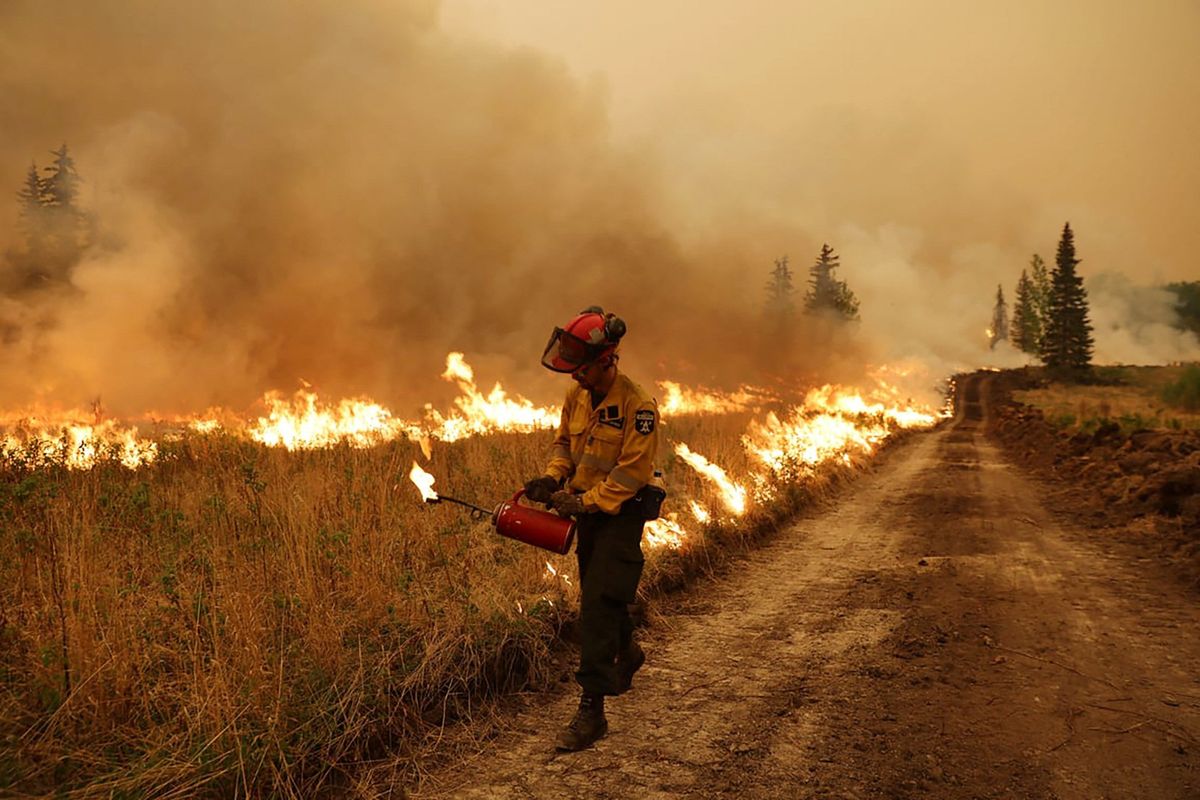Canada’s wildfire season is already in full swing, with a series of intense blazes in Alberta that have sent toxic smoke across the country and into the US Midwest. A wet and cold weekend followed by cooler temperatures this week helped firefighters from Canada and the US battle the 100+ fires, but dozens of blazes remain out of control. Fires are also burning in the provinces of British Columbia, Saskatchewan, and Manitoba, where thousands have been forced to evacuate. And it’s only May – wildfire season goes through September.
Last week, the fires jammed up natural gas exports from Canada to the US, leading to price hikes, and the blazes have also led to reduced oil and gas production. Earlier this month, wildfires shut down oil and gas production in Alberta, reportedly curtailing at least 145,000 barrels of oil per day. A new study links the growth in extreme wildfires to the oil and gas industry as well as cement makers – in case irony is your thing.
Meanwhile, Alberta is in the midst of an acrimonious and tight provincial election in which discussions of climate change are constrained by the province’s reliance on the oil and gas industry – even for the ostensibly left-wing New Democratic Party. Politicians are unwilling to take aim at the province’s main source of wealth. There’s a push in Canada to set an emissions cap and get oil and gas companies to net-zero emissions, but Corporate Knights reports that the industry is lobbying against necessary steps to get there while claiming to support it. Meanwhile, a recent report by the Public Policy Forum claims a full phase-out of oil and gas production by 2050 would cost the province CAD$60 billion. A full wind-down of the industry is not on the table.
Ending the oil and gas industry (which no one is proposing) would be extraordinarily costly, but wildfires in western Canada are expensive themselves – the 2016 fires alone cost CAD$9 billion. They are costing the province plenty in terms of health, domestic and international trade, and destruction, yet politicians shy away from the issue. A federal report cites a series of measures required, and in various stages of adoption, to tackle present and future wildfires, including more money, training more firefighters, purchasing more equipment, and developing a satellite system to track wildfires. Without a significant effort and more aggressive climate action, these blazes will only get worse in the coming years – and their smoke and destruction have no respect for national borders.





